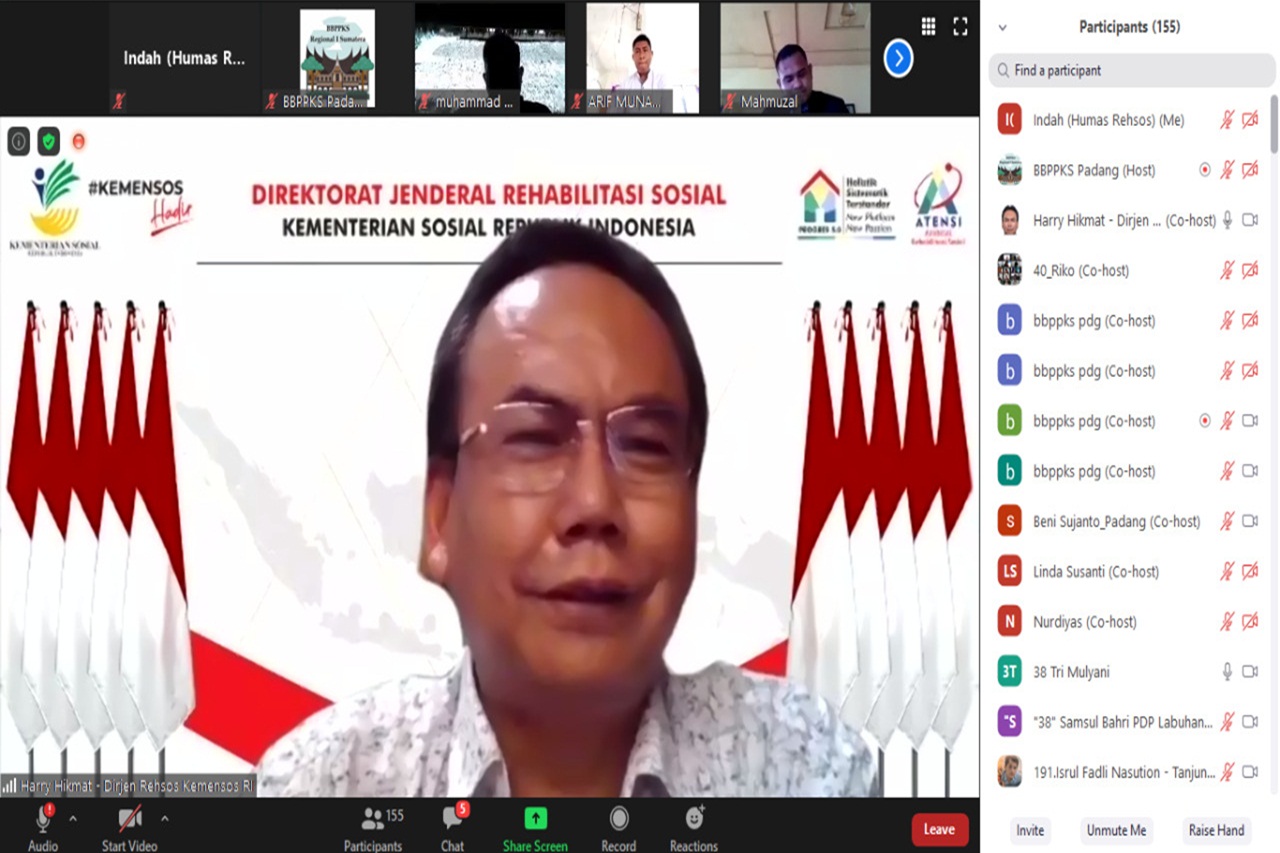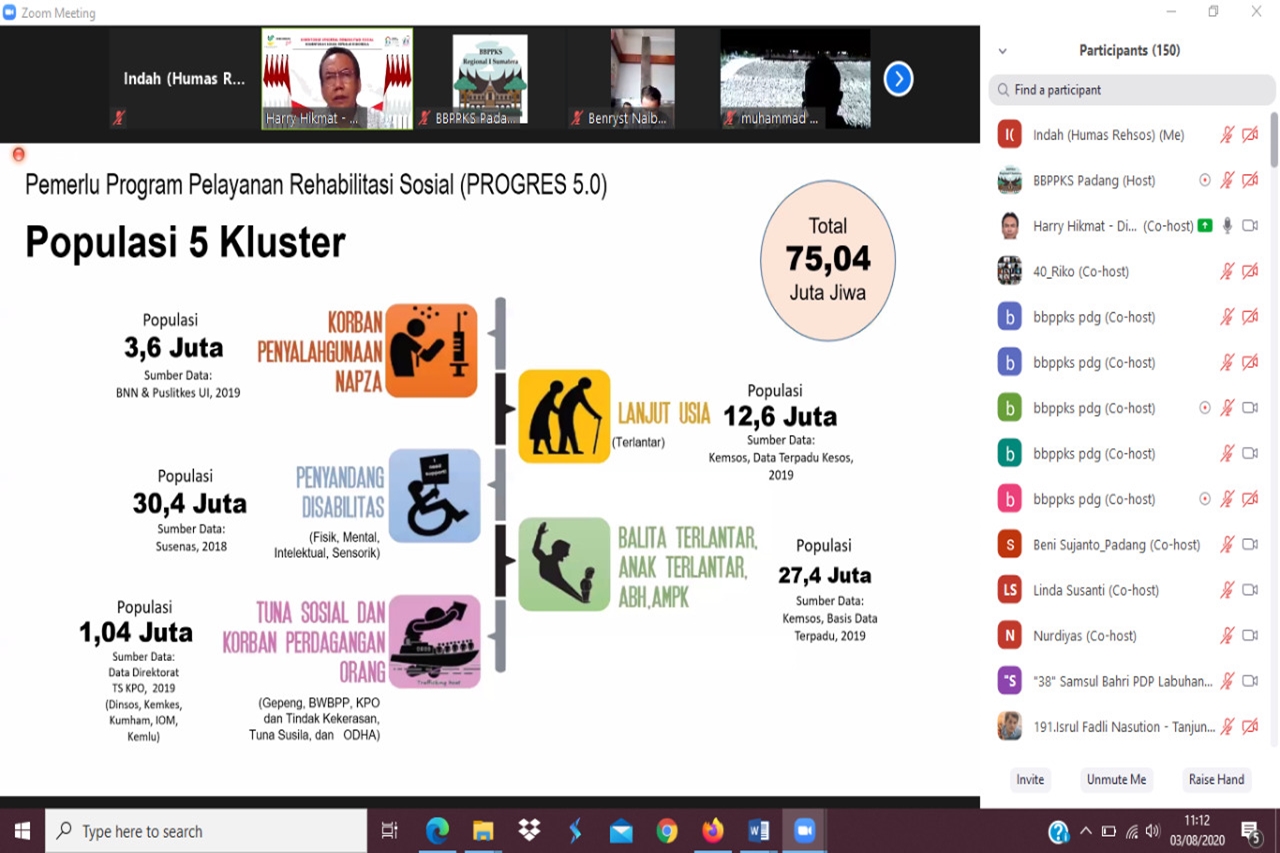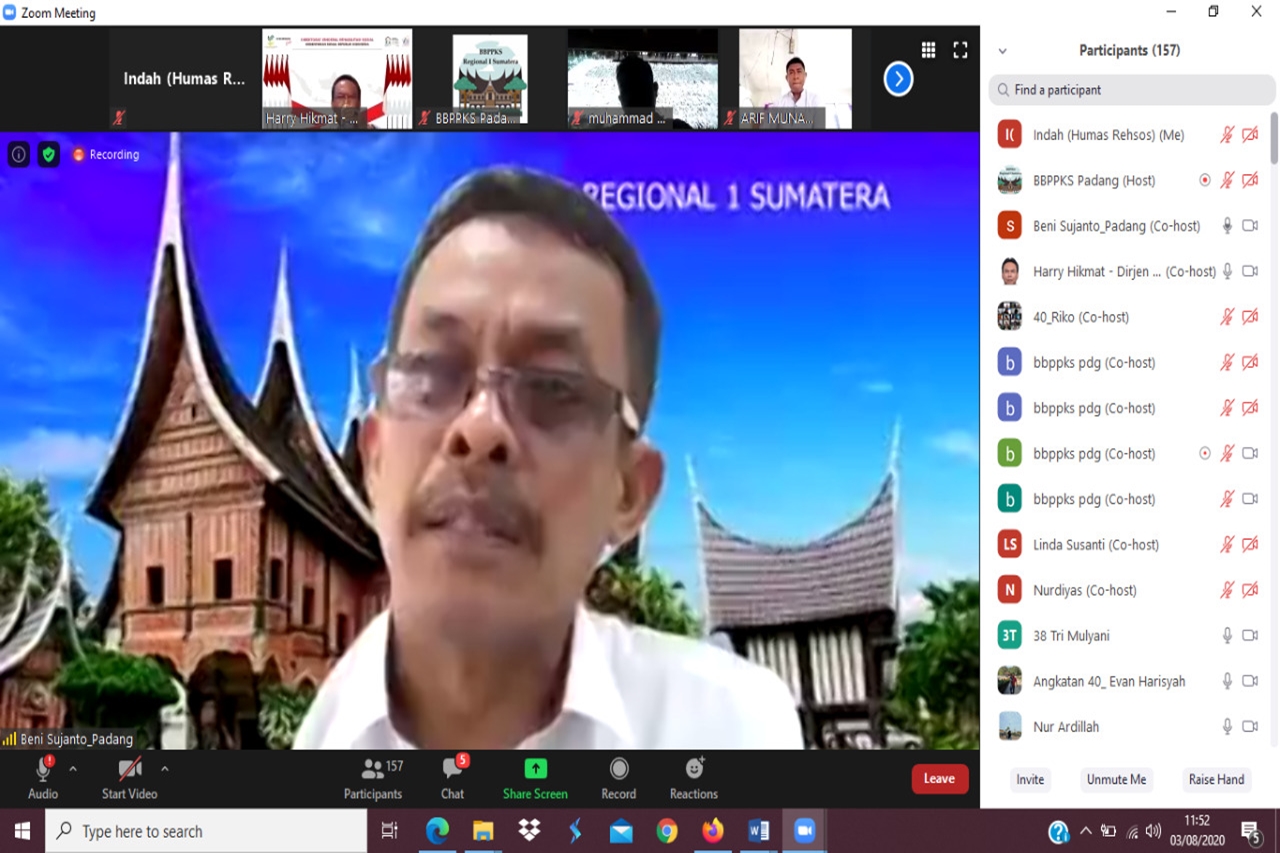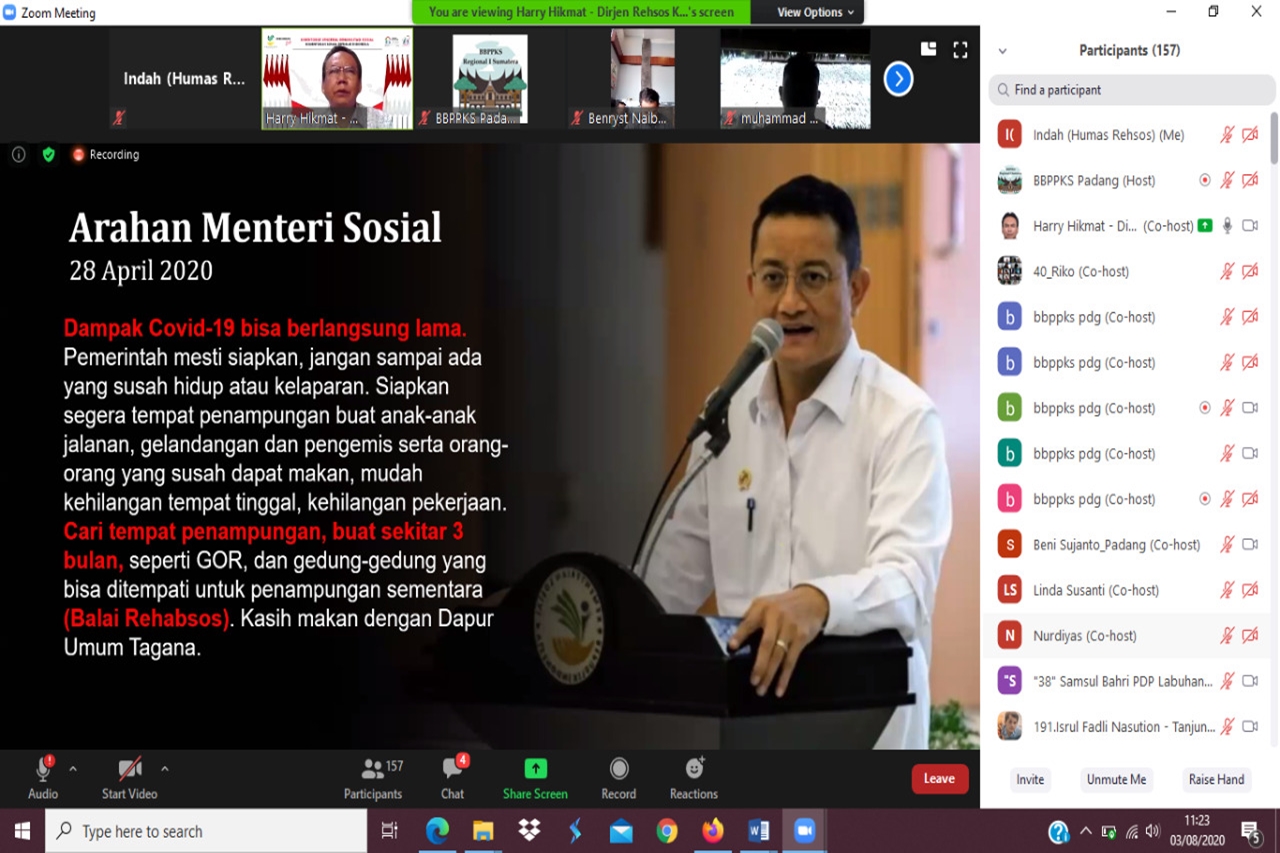JAKARTA (August 3, 2020) - Director General of Social Rehabilitation of the Indonesian Ministry of Social Affairs, Harry Hikmat became a resource person at the Family Capacity Building Meeting Training (P2K2) Family Development Session (FDS) for the Family Hope Program (PKH) virtually . He said that social workers, PKH Facilitators, Social Rehabilitation Facilitators and all other pillars of social welfare must be at the forefront as humanitarian workers.
The change in paradigm within the Directorate General of Social Rehabilitation (Ditjen Rehsos) suggests that professionalism is now a demand in carrying out humanitarian duties.
"In the future, the direction of professionalism is a demand. The assistants must have certified competencies," said the Director General of Social Rehabilitation.
This is shown in the Policy Direction and Social Rehabilitation Program which underwent a paradigm shift into integrated social services, reaching all citizens, a comprehensive and standardized system, prioritizing the role of families and communities, social services in institutions that were temporary and human resources that were based on professionalism.
In addition to the demand for professionalism-based human resources, the Directorate General of Social Welfare will also initiate integrated social services in the form of centrelinks, namely centers that provide social rehabilitation services for Persons Needing Social Welfare Services (PPKS) directly or through Social Welfare Institutions (LKS).
This Social Rehabilitation Service is in the form of Social Rehabilitation Assistance (ATENSI) which consists of meeting basic needs, therapy (physical, mental, spiritual, psychosocial skills/entrepreneurship), social care and family support.
PKH as a form of family support has an important role to prevent the birth of street, vulnerable and very poor PPKS. "Social Rehabilitation Assistance will work even harder downstream if there is no PKH and Non-Cash Food Assistance (BPNT) which have a strategic position as a form of family support," said the Director General of Social Rehabilitation.
Therefore, the Minister of Social Affairs of the Republic of Indonesia, Juliari P. Batubara directed to build a Super Team. In the field, the PKH Facilitator and the Social Welfare Facilitator must work hand in hand and build a strong work team for the welfare of the community.
The population of 5 Social Rehabilitation clusters consisting of Children, Persons with Disabilities, Elderly, Victims of Drug Abuse and Persons with Social Deviance Issues and Trafficking Victims of 75.04 million people must be able to be reached by the social assistance program from the Directorate General of Social Protection and Security, one of which is PKH.
This is because the Directorate General of Social Rehabilitation only plays a role in providing social services, namely Social Rehabilitation Assistance (ATENSI) in 5 Social Rehabilitation Clusters, while the Directorate General of Social Security has a role in providing social assistance (bansos) so that Persosns Needing Social Welfare Services (PPKS) is able to survive.
An example of social services provided by the Directorate General of Social Affairs is following up on the direction of the Minister of Social Affairs, Juliari P. Batubara to carry out the Handling of Displaced People Affected by Covid-19 (PWTC) by providing Temporary Shelters (TPS) for displaced residents affected by Covid-19.
This TPS functioned to accommodate displaced residents who increased during the implementation of Large-Scale Social Restrictions (PSBB). Those who are in public spaces such as scavengers, homeless people and beggars are poor people who are victims of Termination of Employment (PHK).
In addition to difficulties in earning sustenance in the midst of a pandemic, they also find it difficult to access social assistance because the address listed on the Identity Card (KTP) does not match the current domicile address.
For some of these obstacles, the Ministry of Social Affairs in the future will seek to provide assistance based on the Population Identification Number, so that all PPKS can access social assistance such as PKH.
This PWTC uses three approaches, namely the family and community-based approach through the Social Welfare Institution (LKS), based on Temporary Shelter/ (TPS) and based on the Social Rehabilitation Center.
Based on the evaluation, the family and community-based approach through LKS is effective in reducing the number of displaced people in public spaces. This is evidenced by the small number of displaced residents who were caught by the policing operation by the Civil Service Police Unit (Satpol PP).
"LKS together with the community organize independent kitchens, distribute basic necessities, carry out dissemination about Covid-19 to create creative classes for scavengers to make pencil cases and others. This is an example of the effectiveness of strengthening in the community and preventing them from going to public spaces," said the Director General of Social Rehabilitation.
Until now, the total number of displaced people who have been treated is 5,836 people. The number consists of 2,652 handled at TPS in the form of Sports Center in 5 areas in DKI Jakarta, 403 people are handled at the Social Rehabilitation Center which is a referral location for PPKS who need special services (pregnant women, early childhood, people with disabilities and the elderly) and 2,781 handled in the family and community through LKS.
"We hope that the companions of PKH are able to build a passion for siding with brothers and sisters with a more specific poverty status, for example in the Social Rehabilitation cluster," concluded the Director General of Social Rehabilitation.
This virtual training was attended by 156 PKH assistants in the work area of the Padang Social Welfare Education and Training Center (BBPPKS), the Chair of the Padang BBPPKS and his staff.
 English
English
 Bahasa
Bahasa




